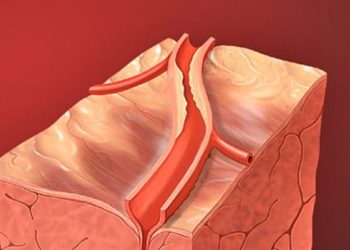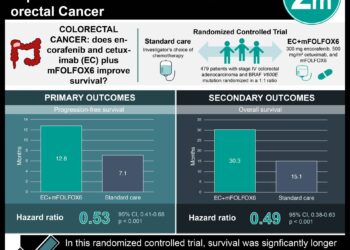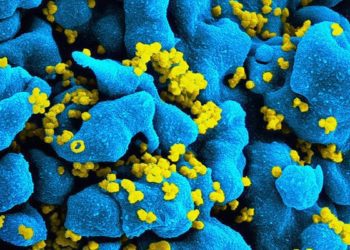2 Minute Medicine Rewind September 30- October 6, 2013
Image: PD
In this section, we will highlight the key high-impact studies, updates, and analyses published in medicine during the past week.
A Randomized Trial of Planned Cesarean or Vaginal Delivery for Twin Pregnancy
Twin births have increased in prevalence with assisted reproductive technologies but continue to have significantly higher rates of perinatal complications. Despite a lack of clear evidence, elective cesarean section for twins is an increasingly popular method for reducing perinatal risk. In this randomized control trial, 1804 women with twins who were between 32 weeks and 38 weeks 6 days of gestation with the first twin having cephalic presentation were assigned to either planned cesarean delivery or vaginal delivery. Investigators found no significant difference in the primary outcome, a composite of fetal or neonatal death or serious neonatal morbidity, between the planned cesarean section and vaginal delivery groups (2.2% and 1.9% respectively, odds ratio 1.16, 95% confidence interval 0.77 -1.74, P = 0.49). This study therefore showed no significant change in risk of fetal or neonatal death or morbidity with planned cesarean deliveries compared to vaginal deliveries in women with twins between 32 weeks and 38 weeks 6 days of gestation.
Proprotein convertase subtilisin/kexin type 9 (PCSK9) binds to LDL receptors and leads to their degradation, an effect that has been shown to be clinically relevant through genetic studies which revealed that PCSK9 loss-of-function mutations reduce plasma LDL cholesterol and the risk of coronary heart disease. In this Phase 1 randomized control trial, 24 patients were randomly assigned to receive a single dose of ALN-PCS, a RNA interference (RNAi) molecule that inhibits PCSK9 synthesis, or placebo. The intervention group demonstrated a mean reduction of 70% in circulating PCSK9 plasma protein levels (p<0.0001) and a mean reduction of 40% in LDL cholesterol (p<0.0001) when compared with the placebo group. This study suggests that inhibiting PCSK9 with the ALN-PCS RNAi molecule may be effective for reducing LDL cholesterol levels and is the first study to show an RNAi drug affecting a clinically validated endpoint in humans.
Primary care practitioners (PCP) play a prominent role in preventing colorectal cancer (CRC) by providing early screening. In this retrospective case-control study, investigators looked at patients diagnosed with CRC between 1994 and 2005 in the US Surveillance, Epidemiology and End Results (SEER) Medicare-linked data set and matched them with control patients based on original reason for Medicare entitlement (age, disability, end-stage renal disease), SEER area, age, and length of continuous fee-for-service Medicare enrollment, to study the relationship between PCP visits and CRC incidence, CRC-specific mortality, and all-cause mortality. A large number of patients were studied in the CRC incidence (n = 102,907), CRC-specific mortality (n = 27,081), and all-cause mortality analyses (n = 62,082). Investigators found that compared with persons having 0-1 PCP visits, patients with 5-10 visits had lower CRC incidence (adjusted odds ratio (OR) 0.94, 95% CI 0.91-0.96), CRC mortality (adjusted OR 0.78, 95% CI 0.75-0.82), and all-cause mortality (adjusted OR 0.79, 95% CI 0.76-0.82). This study therefore showed that Medicare beneficiaries with more primary care utilization had lower rates of CRC, CRC mortality, and overall mortality, which underscores the importance of improving access to primary care in the US for decreasing CRC morbidity and mortality.
Clinical Whole-Exome Sequencing for the Diagnosis of Mendelian Disorders
Although individually uncommon, rare Mendelian diseases collectively affect a substantial number of individuals and represent a challenge for the healthcare system as diagnosis is often difficult and limited to detecting specific phenotypic features, karyotyping, array-based studies, or gene-panel tests. In this study, 250 patients with phenotypes suggesting genetic diseases were subject to whole-exome sequencing as a new method for diagnosis. The investigators were able to discover a molecular diagnosis in approximately 25% of patients (62 of 250 patients, 95% confidence interval 20-31). This rate is higher than previously published yield rates with other genetic tests, such as karyotype analysis (5-15%) or chromosomal microarray analysis (15-20%), and suggests that whole-exome sequencing may be a useful diagnostic test for patients with nonspecific or unusual symptomology indicative of a possible genetic cause. The cost-effectiveness, accuracy, yield, and actual implementation of such a tool will still requires further study.
The WHO currently recommends that HIV-infected individuals in serodiscordant relationships be offered antiretroviral therapy. However, the feasibility and outcomes of implementing such a recommendation on a large scale and in a developing country setting have not been assessed. In this retrospective observational cohort study, 38,862 serodiscordant couples from the Chinese national HIV epidemiology and treatment databases were studied and stratified by treatment status of the HIV-infected partner with a total of 101,295 person-years of follow up of the HIV-negative partner. This study found a rate of HIV infection of 2.6 per 100 person-years (95% CI 2.4-2.8) in the treatment-naïve cohort and 1.3 per 100 person-years (95% CI 1.2-1.3) in the treated cohort, constituting a 26% relative reduction in HIV transmission (adjusted hazard ration 0.74, 95% CI 0.65-0.84). When further stratified by cause of HIV infection, it was found that reduction in transmission was significant across all groups except among those couples in which the HIV-positive partner was initially infected by injection drug use. This study demonstrates that HIV antiretroviral treatment can be an effective HIV transmission prevention strategy on a national scale and in a developing country setting.
Post-menopausal hormone therapy in women is often viewed as a potential method for preventing chronic diseases of aging such as coronary heart disease (CHD) and cognitive impairment. A comprehensive report of the longitudinal effects of such therapy has yet to be published. In this article, the authors provide a full and integrated overview of the long-term findings from the two different Women’s Health Initiative (WHI) hormone therapy trials. A total of 27,347 postmenopausal US women were enrolled in these trials. In one trial, women with an intact uterus were randomized to receive either conjugate equine estrogens (CEE) plus medroxyprogesterone acetate (MPA) or placebo. In a second trial, women with past hysterectomy were randomized to CEE alone or placebo. The interventions lasted on average 5.6 years and 7.2 years for the two different trials respectively with a 13-year follow-up period ending in 2010. Investigators found that CEE plus MPA did not have a significant effect on CHD (hazard ratio (HR) 1.18, 95% CI 0.95-1.45) but did have increased risks of invasive breast cancer (HR 1.24, 95% CI 1.01-1.53) that persisted during follow-up. The intervention group also had increased rates of stroke, pulmonary embolism, dementia, gallbladder disease, and urinary incontinence and decreased rates of hip fractures, diabetes, and vasomotor symptoms. However, none of these risk differences persisted after stopping the intervention. In the CEE-only trial, patients had no difference in risk of CHD (HR 0.94, 95% CI 0.78-1.14) or invasive breast cancer (HR 0.79, 95% CI 0.61-1.02). In both trials there was no difference in all-cause mortality. The findings from these trials are complex but ultimately point to there being no clear benefit in using postmenopausal hormone therapy for chronic disease prevention.
By Neal Yuan and David Ouyang
© 2013 2minutemedicine.com. All rights reserved. No works may be reproduced without written consent from 2minutemedicine.com. Disclaimer: We present factual information directly from peer reviewed medical journals. No post should be construed as medical advice and is not intended as such by the authors or by 2minutemedicine.com. PLEASE SEE A HEALTHCARE PROVIDER IN YOUR AREA IF YOU SEEK MEDICAL ADVICE OF ANY SORT. Content is produced in accordance with fair use copyrights solely and strictly for the purpose of teaching, news and criticism. No benefit, monetary or otherwise, is realized by any participants or the owner of this domain.






